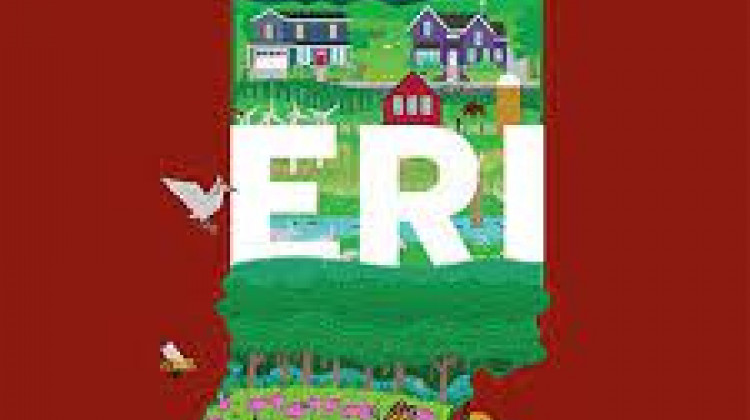Snow on one day followed by summer-type temperatures the next may be seen as typical Indiana weather. But one organization studies how climate and other seasonal changes affect the state. WFYI's Terri Dee speaks with the Indiana University Resilience Institute Managing Director Sarah Mincey about the long-range effects of climate change on government, business and agriculture and public interpretation of information about weather extremes.
WFYI Reporter Terri Dee: The state has seen instances of extreme flooding and very hot, dry summers with smaller occurrences of rain over the past few years. Does the Indiana University Environmental Resilience Institute conduct research about these weather extremes? If so, what has that research produced?
Indiana Environmental Resilience Institute Managing Director Sarah Mincey: Our research affiliates were a part of the Indiana Climate Change Assessment report that came out a few years ago and in collaboration with colleagues at Purdue. Many of the researchers across the university from multiple departments have worked on these very issues from demonstrating through modeling what are local climate change impacts are going to likely be at very fine scale with regard to temperature and rainfall. But they also are working on the impact to our forests, the urban infrastructure in Indiana, and the health of Hoosiers. We've been addressing issues of pests, pathogens and disease vectors, and climate change impacting agriculture, aquatic systems, migratory patterns of birds, and other species.
Dee: Doubt and suspicion exists that the consequences of a warming climate or climate change are over exaggerated. Does the IU Environmental Resilience Institute devote any of its time or resources to address those doubts and suspicions?
Mincey: I think what's really important that this question raises is to point out that much of how people relate to climate change is influenced by the messages that they receive about climate change. It's really important for me to emphasize here a couple of things. One, that the science is clear that climate change is here and we are in for catastrophic impacts. So it's time to drastically reduce our emissions and prepare to adapt our communities. For the higher heat and erratic precipitation that we're seeing, our own researchers have found something that kind of challenges your premise to your question. IERI affiliate and faculty hire at the IU Media School, Nathan Geiger, has found that people really overestimate the amount of doubt regarding climate change that their neighbors have and they doubt that folks would be willing to have policies that address climate change that impact their daily lives. So, what Professor Geiger's work is showing us, is that really more people do understand that climate change is here and it's impacting us, and are willing to actually be in line with policies that would make adjustments to our everyday lives. Those people who are on the ground, who are being impacted by climate change, if we're talking to farmers, or we're talking to business folks or local government decision makers, what we're hearing is that they are interested in being prepared. They do not want to be caught off guard, and IERI programming is helping them to become prepared. We are out there helping them inventory their greenhouse gases, develop climate action plans, and then implement those plans so that they can be resilient to change.
Dee: How can the community uphold the message of how important it is to maintain a healthy environment pertaining to Indiana's agriculture, industry, infrastructure and public health?
Mincey: Climate change is going to disproportionately impact marginalized communities who have been systematically marginalized. So, we've got to focus on on those kinds of communities, and we remember that has got to help us uphold a mission to keep our environment healthy and resilient for all Hoosiers.
Dee: I do appreciate your time today talking with me about this fascinating topic.
Mincey: Thank you, Terri. I appreciate the interview opportunity.
 DONATE
DONATE







 Support WFYI. We can't do it without you.
Support WFYI. We can't do it without you.